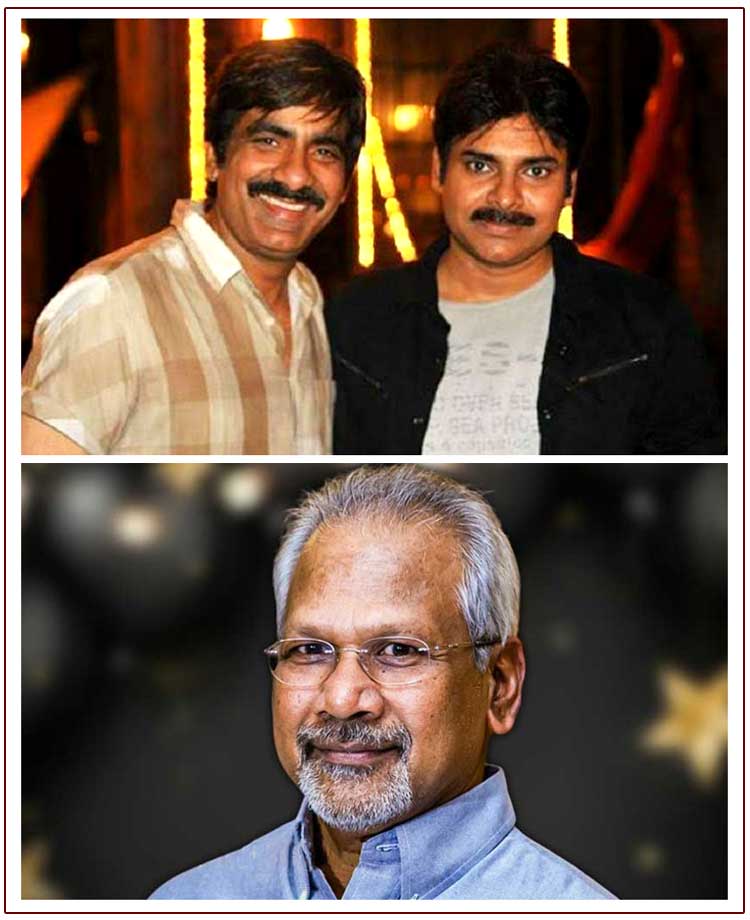Pawan - Ravi Teja - Maniratnam combo missed
The untold story of PK - RT combo

Pawan - Ravi Teja - Maniratnam combo missed. Mani Ratnam, Pawan Kalyan, and a Missed Opportunity: The Untold Story of Yuva in Telugu.
Mani Ratnam, the cinematic maestro, is known for his captivating narratives and ability to extract the best performances from his actors, regardless of their star power. His films, like Ponniyan Selvan, Thug Life, and Rajinikanth, have consistently captivated audiences.
However, a fascinating chapter in his career involves a missed opportunity to collaborate with two Telugu superstars: Pawan Kalyan and Ravi Teja. Mani Ratnam had envisioned a film with this dynamic duo, crafting a compelling story that resonated with both actors.
But fate, it seems, had other plans. Pawan Kalyan, known for his discerning eye and unwavering commitment to his craft, expressed concerns about the film's potential success with two prominent stars.
Mani Ratnam, a director renowned for his respect for his collaborators' opinions, gracefully stepped back, offering to develop a different story instead. This decision, however, led to the shelving of the project.
The original story, intended for Pawan Kalyan and Ravi Teja, eventually found its way to the silver screen as Yuva, a Tamil-language film featuring Suriya, Madhavan, Siddharth, Trisha, and others. The film was a critical and commercial success, even finding success in its Hindi adaptation.
Interestingly, Yuva was later dubbed and released in Telugu, introducing Suriya to Telugu audiences. While it garnered positive reception, the Telugu version lacked the initial impact of the Tamil original.
This missed opportunity has sparked debate among fans, with many speculating on the potential success of a Pawan Kalyan-Ravi Teja collaboration under Mani Ratnam's direction. Some believe that Pawan Kalyan's concerns about the film's pacing and narrative were justified, arguing that the film's slow narration might not have resonated with Telugu audiences.
Regardless of the "what ifs," the story of Yuva serves as a reminder of the complex interplay of creative vision, artistic integrity, and commercial considerations in filmmaking. It highlights how even the most celebrated filmmakers can be influenced by the concerns and decisions of their collaborators, ultimately shaping the course of cinematic history.




 Samantha Latest Response to Konda Surekha Comments
Samantha Latest Response to Konda Surekha Comments Namitha Pramod in Prabhas Fauji
Namitha Pramod in Prabhas Fauji